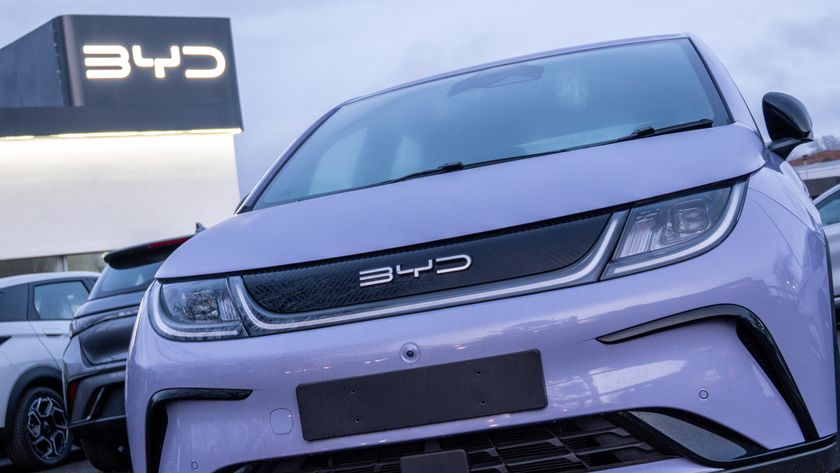5 Reasons to Buy an Electric Vehicle Later
After many fits and starts, the mass-market electric car may finally have arrived. Major automakers General Motors and Nissan will be rolling out the Chevrolet Volt and the Leaf in the coming weeks and these vehicles might just help spark an electric car revolution.
Although automobiles that run on electrons instead of fossil fuels predate the original Model T, electric vehicles have never caught on for modern day street driving.
Hybrid electric vehicles, which combine a conventional internal combustion engine with some form of electronic propulsion to boost overall gas mileage, are of course around in significant numbers.
But the plug-in hybrid electric Volt and the all-electric Leaf take a big step forward from these hybrid electric vehicles that we have become accustomed to since the Toyota Prius came out in the late 1990s.
With the new Volt, gas-burning takes a back seat to electricity, kicking in after the batteries have drained to power an electrical generator.
As the name implies, a plug-in vehicle gets most or all of its juice from an electrical outlet rather than from a gas pump.
The Leaf, meanwhile, is a pure electric vehicle — a cord plugged into an outlet is its only means of obtaining power.
Sign up for the Live Science daily newsletter now
Get the world’s most fascinating discoveries delivered straight to your inbox.
Along with these newcomers and the Tesla Roadster — which had stood as the only highway-legal all-electric vehicle for the last two years — many other plug-in hybrid or fully electric vehicles are set to hit the road soon.
So for those interested in getting an electric car, does it make sense to buy now or later? In the following Countdown, TechNewsDaily presents five reasons why it makes sense to wait to buy an electric car. But equally good arguments could be made to buy now. [Read: 5 Reasons to Buy an Electric Vehicle Now]
Electric vehicles, given their expensive batteries, generally cost more than similarly equipped and capable fossil fueled-cousins.
"The major con for electric vehicles is cost; they cannot be purchased without a premium over a conventional vehicle, and that premium is significant," said Pat Davis, program manager of vehicle technologies at the U.S. Department of Energy (DOE).
The basic Volt, for example, lists for $41,000 (the Leaf goes for $33,720). After the federal tax break, the Volt's price tag drops to $33,500, placing it in competition with luxury sedans such as the base BMW 328i, the Audi A4, and the Infiniti G37, according to Edmunds.com. (Chevy's website likes to compare the Volt to the $57,950 Lexus GS Hybrid.)
Yes, in the long run, savings on gas will make up for an initial extra investment. A fully charged Leaf battery with a range of 100 miles (160 kilometers) costs about $2.75, based on the national average electricity cost of 11 cents per kilowatt-hour, according to Nissan. That's on par with the current national gas price for a single gallon of gasoline at $2.80, according to the Energy Information Administration, which, depending on your vehicle, will take you only 25 miles (40 km) or so.
Nevertheless, the reality is that seeing those savings in fuel costs compensate for the extra up-front costs will take a good part of most of the life of the vehicle, Davis said, and "that’s not the way most people buy vehicles, so that’s a major con."
Over the next decade and beyond, electric vehicle batteries will get much cheaper, though, Davis noted, aided in large part by the $2.4 billion the Obama administration has dedicated to their domestic manufacturing and deployment. "Right now, advanced batteries cost $800 per kilowatt-hour," Davis said. "Our modeling shows [that by] about the middle of this decade prices drop to $400 per kilowatt-hour."
Those savings will not cut the entire price of an electric vehicle in half, of course, but will certainly make the rides more affordable for all.
Range anxiety
We're used to driving a car as far as we feel like: gas stations are all over, even in the hinterlands, and filling up takes mere minutes.
Not so for electric vehicles. The Nissan Leaf claims a range of 100 miles (160 km) before it's out of juice; that distance limit is a bit of a best-case scenario, however, as weather, battery age and even just having your headlights on all chip away at battery life. [Read More: 7 Reasons Your Electric Car Won't Go So Far]
For a plug-in hybrid such as the Volt, the concern is erased: the gas-powered generator fires up once the battery is dead, and GM claims 350 miles (56 km) on a full battery and full tank of gas.
For all-electric vehicles at this point in their development, though, limited range — and the "range anxiety" this causes potential customers — is another major drawback, Davis admitted.
Recharging woes
And once an electric vehicle battery's kaput, filling it back up is time-consuming.
For the Nissan Leaf, a full recharge can take up to 20 hours on a standard 110/120 volt, 15-amp outlet for so-called Level 1 charging, or around eight hours on a 220/240 volt outlet (like that used for a clothes drier) for Level 2 charging. At-home stations of this sort cost about $2,000, according to Nissan, and qualify for a 50 percent of cost-and-installation tax credit of their own.
The vision is for owners to charge up their cars at night, just like a cell phone, with a level 2 charger. But as we've all experienced, it's all too easy to forget to plug that phone in, and in the case of an electric vehicle, the consequence is no ride to work in the morning. [Read More: Electric Vehicles Face Charging Challenges]
The solution: Level 3 charging. At these 480-volt, so-called quick-charge stations, juicing up to 80 percent takes a half hour. But these expensive high-voltage units will primarily be found (eventually, if all goes according to plan) at commercial recharge facilities.
Electric vehicle backers have claimed that a national, coast-to-coast electric vehicle infrastructure — like today's gas stations — with quick chargers will exist in as soon as five years. [Read More: Ultra-fast Charge Nears Reality for Electric Cars]
For now, such facilities only exist in any appreciable number in California.
More evolved electronic features on the way
Electric vehicles are going to get a lot "smarter" from a services perspective due to improved software and electronics, according to Tom Turrentine, director of the Plug-in Hybrid Electric Vehicle Research Center at the University of California.
"You have a lot more electric energy stored onboard [an electric vehicle]," Turrentine said, and that extra juice can be put to good use.
Owners will be able to send a command from a cell phone to turn on certain features of their electric car remotely; for example, to cool off the interior while it sits in a hot parking lot.
The potential applications are vast. "Think of your house; all the things you do with [its] electricity, you'll have that kind of electricity available in your vehicle," Turrentine said.
Not stylish enough?
Never underestimate vanity when it comes to car purchases. Although few people would likely brand the Volt and Leaf eyesores, do the cars have enough "auto-erotic" appeal beyond their other merits to really entice consumers?
Both GM and Nissan chose not to imbue their big electric bets in the U.S. market with potentially polarizing styles. We’re guessing, however, that the Leaf with its buggy headlamps might turn off a few potential buyers.
Some other models slated to come out in the next couple of years might also find it hard to get U.S. consumers suitably amped.
The Mitsubishi i-MiEV, for example, which is already on sale in Japan and could come to the U.S. and Europe next year, defines "subcompact." The Volkswagen Up! Blue E-Motion is a similarly stout ride.
The little vehicles aim for eco-consciousness and easy parking and maneuverability in crowded urban quarters. Europeans have long opted for smallish vehicles, but if history is any guide, Americans have hardly followed a "less is more" philosophy in their car purchases (see: the 1990s sport utility vehicle craze).
But then again, if a goodly number of people do decide electric vehicles are for them — as GM, Nissan and other giant auto companies are betting — size, and to an extent style, might not matter like it has in the past.
• 5 Reasons to Buy an Electric Vehicle Now• Zap: 10 All-Electric Vehicles Gearing Up to Hit the Streets• Coolest Vehicles You'll Never Get to Ride













